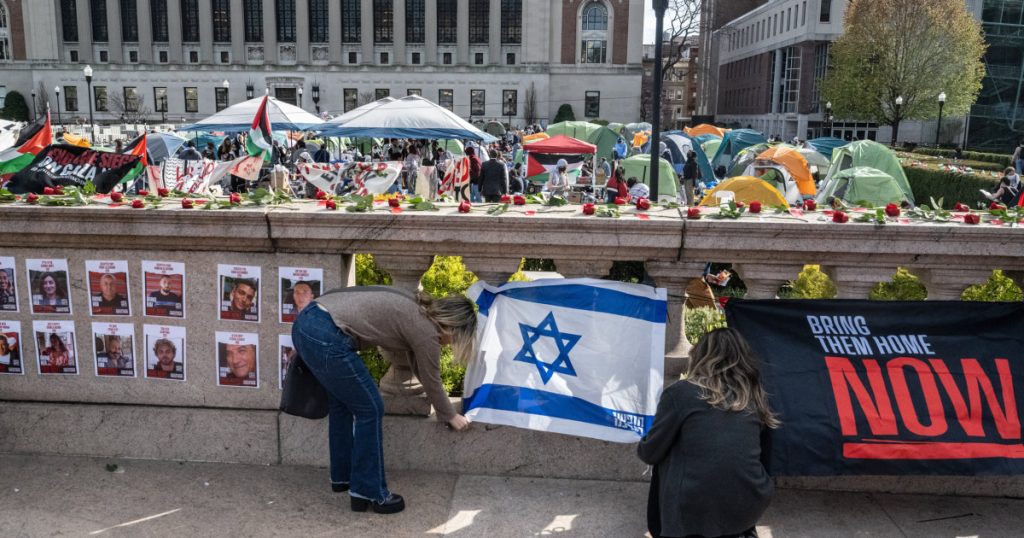Students at Columbia University have filed two separate discrimination complaints due to ongoing confrontations between pro-Palestinian protesters and counterprotesters. The first complaint, filed in the Southern District of New York, accuses the university of allowing “extremist protesters” to intimidate Jewish students and push them off campus. The second complaint, filed with the Education Department’s Office for Civil Rights, accuses Columbia of failing to protect students who have faced anti-Palestinian, anti-Arab, and Islamophobic harassment on campus since October 9, 2023. This harassment has included death threats, slurs, and doxxing campaigns.
The protests began on April 17 when students set up encampments calling for divestment from companies tied to Israel’s military operations in Gaza. The protests spread to campuses across the country, with protesters being arrested and drawing national and international attention. Following over 100 arrests at Columbia, Palestine Legal filed a complaint accusing the university of discriminatory treatment of Palestinian students and their allies. The class action lawsuit filed on behalf of Jewish students requests an emergency injunction to enforce the school’s code of conduct and allow students to safely complete the semester in person.
The complaints detail a range of harassment experienced by students, including physical violence, hate speech, and targeting based on religion and identity. Both Jewish and Muslim students report feeling targeted due to their beliefs, with incidents escalating to threats and assaults. The rise in antisemitic and Islamophobic incidents on college campuses, including Columbia, has been a cause for concern. While anti-war protesters emphasize a message of peace and respect for all, students from both communities have faced discrimination and harassment.
University officials have not yet responded to the complaints, although virtual learning options have been offered to students. President Minouche Shafik acknowledged the challenges students face on campus and reaffirmed Columbia’s commitment to diversity and inclusion. However, the complaints highlight a disconnect between these values and the realities faced by students of different backgrounds. The legal actions seek to address these issues through advocacy and seeking unspecified punitive damages.
Students like Itai Dreifuss and Chaya Droznik have shared their experiences of harassment and antisemitism on campus, highlighting the need for greater protection and support from the university. The protests and confrontations surrounding the Israeli-Palestinian conflict have underscored deep-rooted tensions and divisions within the Columbia community. Organizers like Cameron Jones and Nadia Ali, from Jewish Voices for Peace, have worked to promote understanding and denounce hatred, emphasizing the importance of safety and inclusivity for all students.
As incidents of discrimination and violence continue to be reported on college campuses across the U.S., organizations like the Anti-Defamation League and the Council on American-Islamic Relations are working to address these issues. The divisions and conflicts seen at Columbia reflect broader societal challenges around intolerance and discrimination. Efforts to promote dialogue, understanding, and respect are essential in creating an inclusive and safe environment for all students, regardless of their backgrounds and beliefs.













